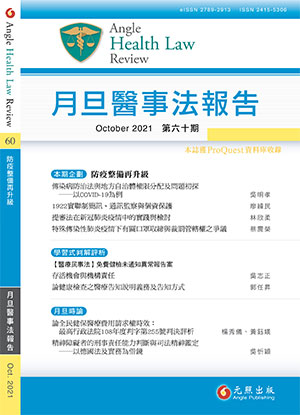以機器人系統進行PCR檢測:醫學自動化的法規支持【醫事綜探】 試閱
Deploying Robotic System in the PCR Testing: The Regulatory Basis for the Medicine in the Era of Automation
自新冠肺炎疫情爆發後,在各國檢驗能量備受考驗下,不同國家以各種相應措施試圖改善檢測的困境,並試圖加快檢驗速度、加大檢驗數量。我國以專案方式授權國外輸入檢驗試劑及輔導國內製造;美國則以緊急使用授權開放進口並放寬審查;日本廠商在機場、體育場館等人群聚集處導入機器人系統加速檢驗,並降低醫療人員採檢時的感染風險,機器人的自動預處理更可自動對陽性樣本進行基因解析,快速掌握變異株的感染狀況並檢測出新的變異株;荷蘭研究所則是導入號稱是迄今最快、最精確的機器人檢測系統。
Since the outbreak of COVID-19, the public health agencies have been seriously challenged by the pandemic; countries tried to accelerate the quality and quantity of PCR test and tried to improve the storage of testing reagent with different solutions. In Taiwan, TFDA authorized case-by-case on the importation of test reagent for the emergency use and assisted the domestically produced test reagent. In Japan, the robot manufacturer developed an automated PCR viral testing robot system in crowded places, such as airports and stadiums to speed up the test and ceased the infection risk when the health professionals collected the sample. There was also an automated system for the analysis of the novel coronavirus, which the pre-process could automatically conduct the gene analysis to the positive sample, monitor the infection status of the sample and detect new variants. In the Netherlands, the research institute developed a pioneering automated test robot, which claimed to be the fastest and most accurate robotic test system.
178-184






